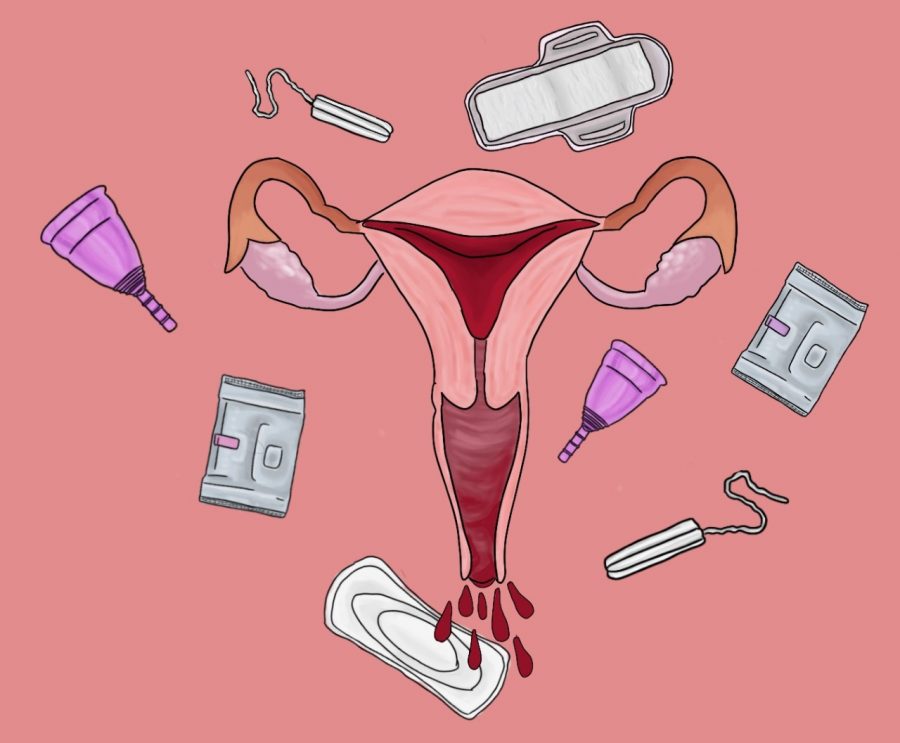Linfield Bleeds: An exciting new club on campus about menstruation
November 16, 2020
A new club called Linfield Bleeds is gushing for membership. The President of the club, Kenna Tanouye, said the purpose of the club is to “advocate, serve and educate the Linfield community on the importance of menstrual equity and period poverty in the United States and the world.”
Still in their early stages of development, the club is looking to create a larger executive team and recruit club members–especially freshmen who are looking to join clubs and get involved.
“Technically we’ve been figuring out and running it [the club] since March,” Tanouye said. When the in-person semester was interrupted by the pandemic, club plans were thrown off. This semester, Tanouye has been working hard to get the club back on track.
Linfield Bleeds is dedicated to spreading knowledge about menstruation on campus. She emphasizes menstruation is not just a cisgender women’s issue, it affects other genders as well. Tanouye highlights this point, explaining the way she seeks to educate those who are not familiar with this topic.
“People who don’t experience menstruation just don’t know and choose not to learn, so that’s a big barrier,” Tanouye said. She also mentions how education is key to minimizing some of the stigmas around menstruation.
“It’s shrouded in mystery and shame, but if you just bring it out into the open, it’ll make people more comfortable to talk about it as a whole,” Tanouye said. “People have to cover up all the time saying they have the cold or have the flu instead of just saying ‘I have bad period cramps today and I can’t move my legs’.” Tanouye reiterates believing women shouldn’t have to lie about having their periods or feeling shame around suffering from period symptoms is key to understanding the stigma surrounding menstruating.
“Mental health menstruation can cause you to become physically sick or not be able to function for that day,” Tanouye said when elaborating on one of the reasons the club hopes to educate and remove the stigma surrounding the topic.
Tanouye plans on working with Linfield University Pride, the LGBTQIA+ Pride club on campus. The hope is to hopefully organize a “workshop discussion to talk about menstruation through a queer lens,” Tanouye says with a head nod and smile.
The club has one large goal that puts the need for free period products into action.
“Something that we’re currently trying to figure out for this semester is to have some sort of sustaining fund through ASLU to provide free products in the food pantry,” said Tanouye. The food pantry is run and funded through the Community Engagement Department, where students have access to free food and other essentials.
The hope is to provide menstruation product dispensaries in more gender-neutral locations around campus, besides just bathrooms, for individuals who may be gender-non-conforming. Free condom dispensaries are located in the laundry rooms of most dorms– “so why not menstruation products?”– Tanouye asks. Ideally, these free menstruation product dispensaries would be funded by the school just like the condom dispensaries are.
Tanouye then explains just why this goal of access to free products around campus is necessary. “There’s this assumption that if you can afford to go here you can afford all these extra commodities and that’s not necessarily always the case,” she said. “A lot of people here are on a lot of financial aid, but tuition doesn’t leave room for a lot of other things.”
One of the ideas mentioned by Tanouye when asked what the club would do if they had more hands to help would be collaborating around campus. “We would love to be able to partner with more academic departments and professors who are more educated than us because there are other great initiatives that are through other departments on campus.” Tanouye said.
Although the club has many aspirations and bigger plans, they currently don’t have enough people who can devote time this semester,making it difficult to figure out which steps and goals are possible.
“A lot of [the club] is very project-based so regarding a weekly meeting, we’re aiming for a one-hour time block every week depending on what we’re working on,” Tanouye said. She hopes to keep weekly meetings short and sweet to accomodate for busy schedules.
The club is roughly 20- strong at the moment, but the hope is to expand as much as possible. To join the club, one can email Tanouye and she’ll make you a member or you can join the club through https://linfield.campuslabs.com/engage.
With the future at Linfield looking a little brighter for those who menstruate, Linfield Bleeds is eagerly awaiting the journey to bring menstruation education and equality to the campus.


Menstrual Cup • Dec 7, 2020 at 11:00 am
I hope they will offer menstrual cups, which are more sustainable than disposable options. #SustyCats